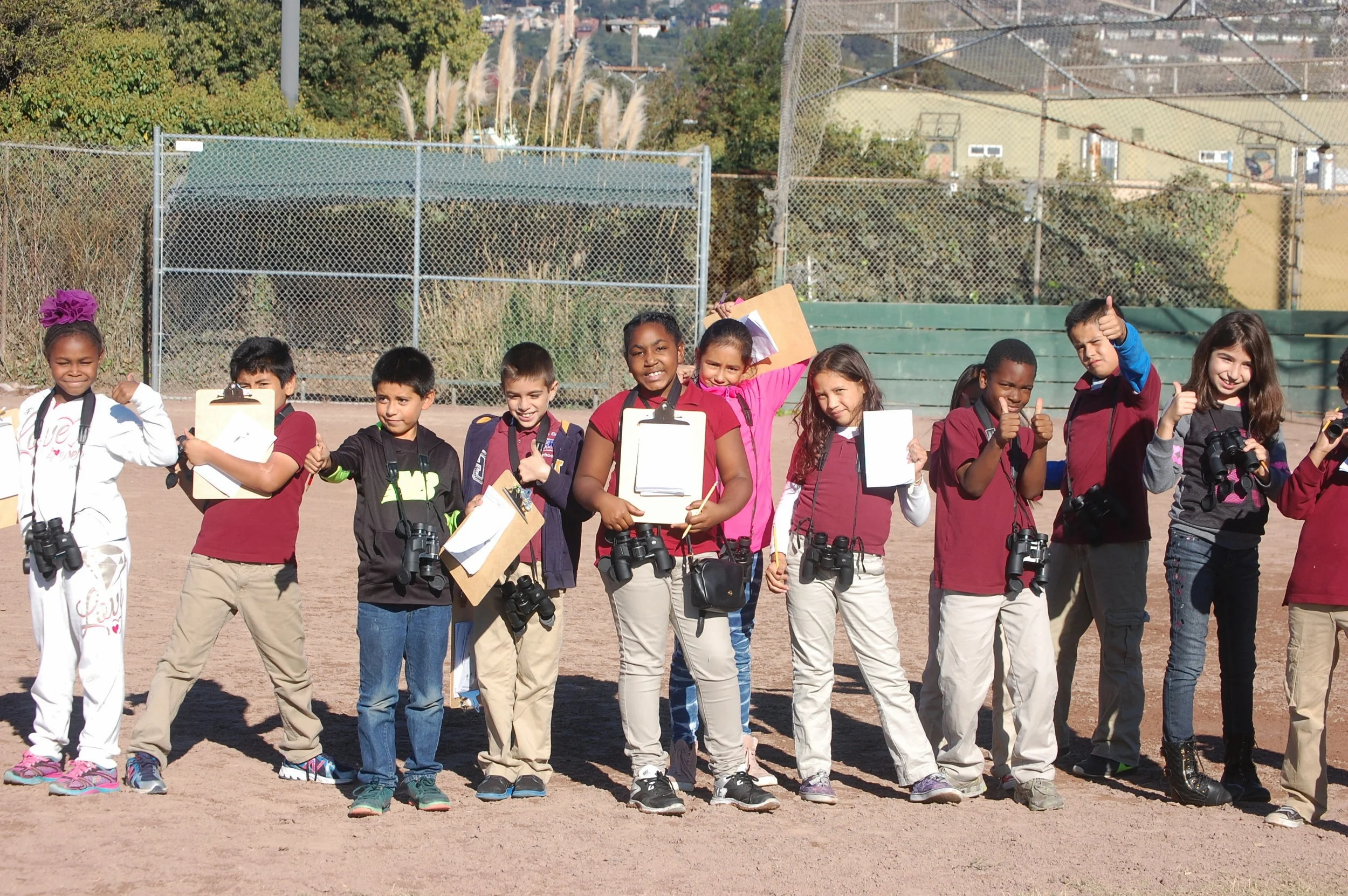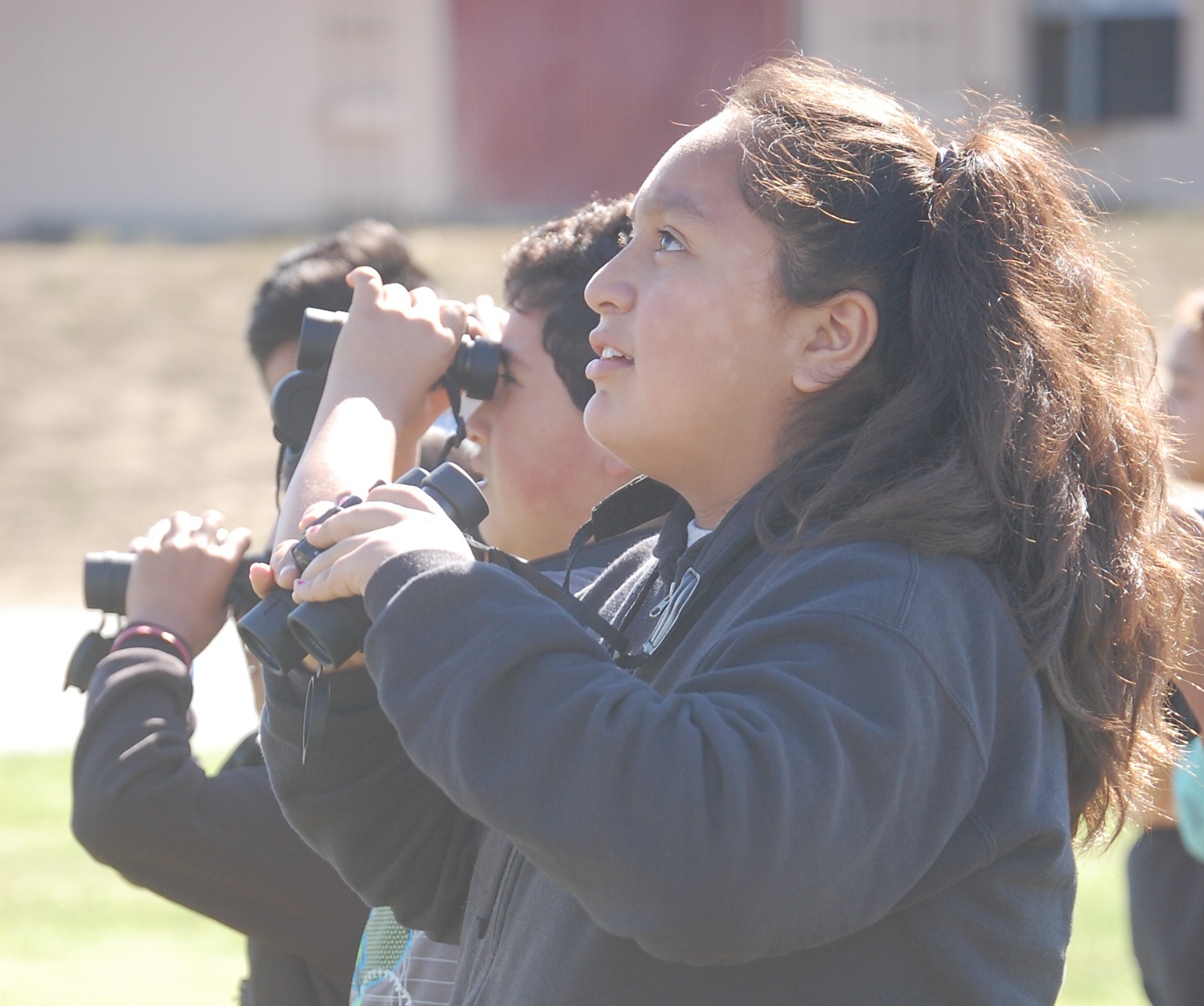We guide students outside the classroom walls to learn about the natural world first-hand.
Quality access to nature is limited.
Many schools lack resources, transportation, and time to travel somewhere. There are birds on every schoolyard and a big step towards students engaging with their environment is being shown what's out there.
We take students out into the schoolyard where they acquire basic naturalist skills. We learn how to observe, use binoculars, take detailed notes, and have fun with friends while doing it.
Students use newly acquired skills to inform their actions. We contribute to citizen science, learn how decisions we make can impact bird populations and habitat in our neighborhoods. We take responsibility for our home, school, and choices.
A recipe for creating a lasting relationship with nature.
Birdwatching
Birds are beautiful, charismatic, and perfect for introducing science topics. Most importantly, birds are everywhere! Learning about our winged neighbors can serve as a constant reminder that to trained eyes and aware minds, even in the most urban of environments, nature is all around us.
The outdoor classroom
We have an opportunity to create real-world science education that simultaneously inspires connection and stewardship. To creatively break down the walls that we once considered a classroom, we first have to start with opening our doors and windows; eyes and ears, to this wonderful resource that exists right outside our doors.
The field journal
The field journal is a naturalist's best friend and greatest tool. The process of journaling allows students to organize thoughts, ask questions, and develop authentic ideas and conclusions. It leads to critical thinking and analytical inquiry that we hope for all of our students to engage in.
Routines of a naturalist
In order to integrate natural history field studies and traditional science curriculum, we need to develop simple routines to incorporate with our classes. We give teachers the tools they need to weave these deeply impactful practices into daily school life.
Citizen Science
NGSS (The Next Generation Science Standards) and STEM (Science, Technology, Engineering, and Math) call for modern-day students to develop modern-day skills. When we collect data and submit it to online science databases, we create extensive opportunities for doing high quality technical science.












